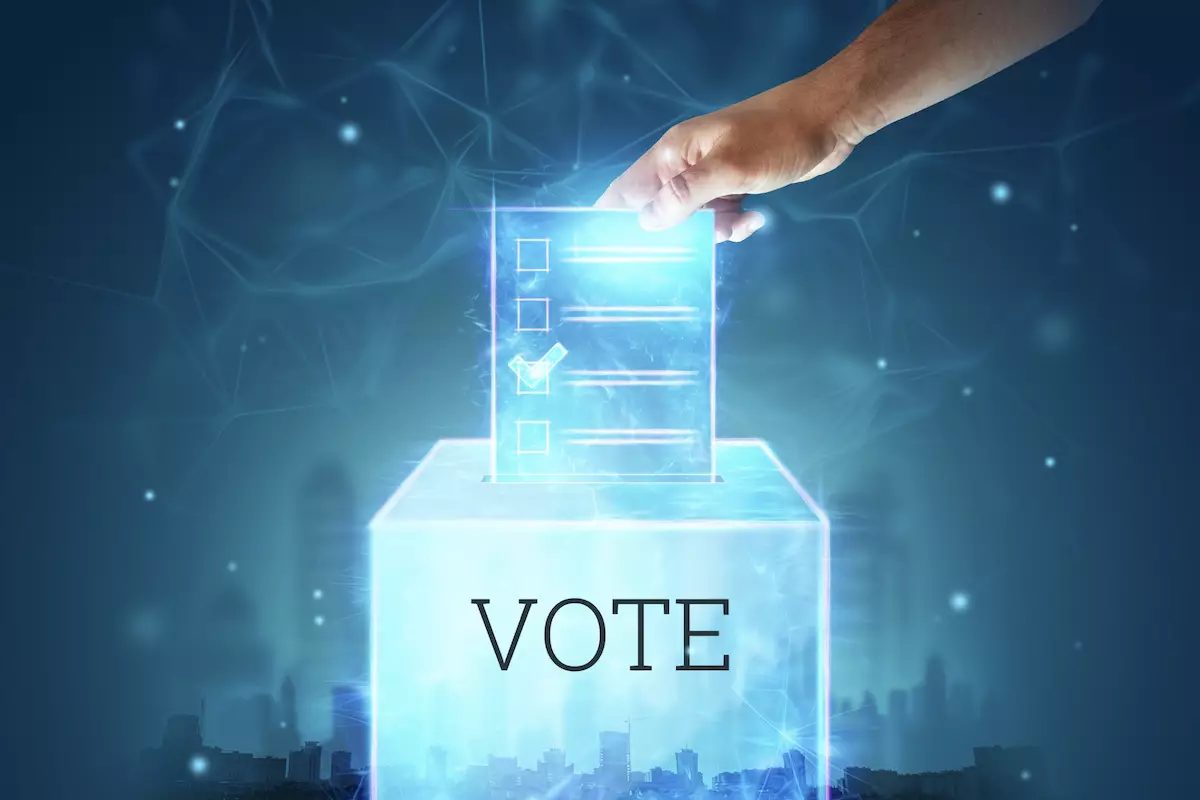Blockchain technology has captured the imagination of technologists and policymakers alike, leading to intriguing discussions about its application in the electoral process. Could it truly transform how we vote? The potential benefits—including enhanced transparency, increased security, and greater accessibility—have generated excitement. Yet, the road to implementing blockchain voting is fraught with challenges and uncertainties that question whether it is indeed the answer for modern democracies in crisis.
One of the most compelling arguments for blockchain voting is its inherent transparency. Utilizing a decentralized digital ledger, every vote recorded becomes part of a public database that cannot be easily manipulated or erased. This level of transparency could significantly contribute to restoring public trust in electoral outcomes, especially in nations plagued by allegations of vote tampering and fraud. Countries like Romania are pioneering this initiative, employing blockchain technology in their 2024 presidential elections to allow citizens to monitor vote counts in real-time. This change holds the promise of empowering voters with greater confidence in the electoral process by ensuring that each ballot is verified through secure systems.
Accessibility in voting has long been a concern for marginalized populations, from those with disabilities to citizens living in remote locations. Traditional voting mechanisms often limit the ability of these groups to participate in public elections. Blockchain technology can break these barriers down through online voting options that enable individuals to cast their ballots from the comfort of their homes. This is not just advantageous for those facing mobility issues or geographic isolation; it could potentially lead to higher voter turnout overall. Elections could become more inclusive spaces, allowing for the voices of individuals who might have otherwise been excluded to be heard.
The financial implications of adopting blockchain for voting are also worth noting. The elimination of physical voting infrastructure could lead to substantial savings. Conventional voting systems entail numerous costs, from the physical materials needed for ballots to the staffing required at polling stations. By streamlining the voting process through online platforms, governments could redirect funds toward more pressing social needs while enhancing the efficiency of election outcomes. Switzerland has already taken initial steps by experimenting with blockchain voting in Zug, successfully conducting a digital ballot that laid the groundwork for future advancements in voting technology.
However, as promising as blockchain voting may appear, serious questions linger regarding its security. While the blockchain itself is designed to be resistant to tampering, numerous vulnerabilities exist in the broader voting process. For example, votes can be altered or sabotaged before they are ever recorded on the blockchain, leaving the system exposed to potential cyber-attacks. The risk of losing access to digital voting mechanisms, whether through hardware malfunctions or lost digital keys, is another pressing concern that could disenfranchise voters, which government agencies may be reluctant to accept.
The issue of privacy is equally critical. Voters must feel confident in knowing that their individual votes are secure and untraceable back to them. Balancing transparency with the need for privacy creates a complex challenge that will require innovative solutions.
An emerging concept in voting technology is the notion of Soulbound Non-Fungible Tokens (SBTs). These specialized digital tokens could offer a new method for identity verification during elections. Upon confirming their eligibility, voters would receive a unique SBT that not only acts as a digital ID but can also be tied to other secure authentication measures, such as biometric data. This approach could eliminate issues of double voting while making the voting process more accessible.
While the advantages of SBTs are intriguing, they raise similar concerns regarding privacy, security, and implementation costs. The adoption of this technology would not occur overnight; instead, each implication would necessitate thorough evaluation and testing.
Blockchain voting has the potential to radically change how elections are conducted, from increasing transparency to enhancing accessibility. Romania’s current implementation is a standout example of how technology can innovate governance. Yet, the challenges are substantial. Security vulnerabilities, the need for significant investment in infrastructure, and overcoming public skepticism present formidable obstacles that require thoughtful navigation.
Before blockchain becomes a ubiquitous component of election systems worldwide, meticulous planning, rigorous testing, and building voter trust will be essential. The prospect of redefining voting could indeed be realized, but only with careful attention to the myriad concerns that come bundled with this transformative technology. The future of our democratic processes may hinge on our ability to adapt and innovate intelligently in the face of these challenges.

